Our nightstands are loaded with books to read, and our laptops are packed with websites to explore and unpack wisdom about the global food supply chain.
 Books
Books
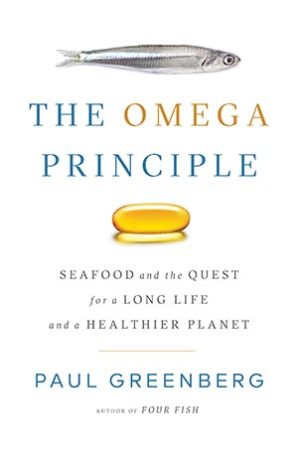 The Omega Principle (Paul Greenberg)
The Omega Principle (Paul Greenberg)
The author of several books about our seafood, Paul Greenberg takes us for a deep dive into the merits, demerits and challenges of Omega 3, a nutritionally beneficial fatty acid found in seafood. As you might imagine, the consequences ripple right through the seafood supply chain.
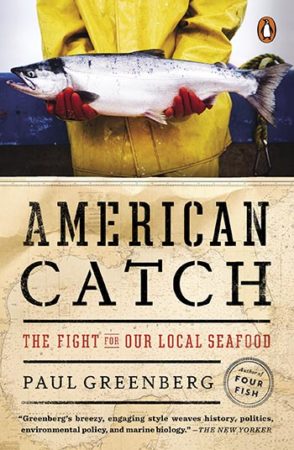 American Catch (Paul Greenberg)
American Catch (Paul Greenberg)
In another book, Greenberg uses stories about three types of seafood — Eastern oysters, sockeye salmon and shrimp — to chart the rise and fall of American fisheries.
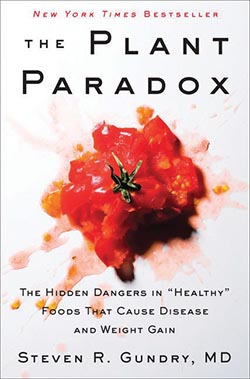 The Plant Paradox (Steven Gundry)
The Plant Paradox (Steven Gundry)
If you think eating bread makes you fat, you might find an argument in this book to support your theory. There’s lots of debate between these covers, and nutritionist Steven Gundry will give you reason to reconsider the science behind most diets.
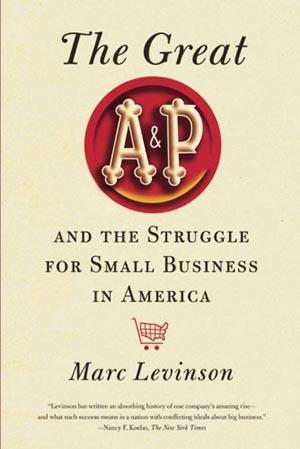 The Great A&P and the Struggle for Small Business in America (Marc Levinson)
The Great A&P and the Struggle for Small Business in America (Marc Levinson)
For some history about mom-and-pop stores, in the context of the grocery juggernaut that was A&P (aka The Great Atlantic & Pacific Tea Company), read Marc Levinson’s book about the grocery giant. A&P threatened Main Street stores long before anyone had ever heard of Walmart.
 Podcasts
Podcasts
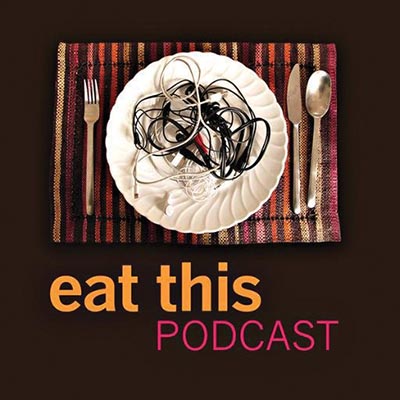 Eat This: Our Daily Bread series
Eat This: Our Daily Bread series
We continue to be fans of Jeremy Cherfas’ “Eat This Podcast.” Recently, he explored every angle and story about wheat in at least 31 micro-episodes. You will learn about Red Fife, sourdough, bakeries, mills and more. We love enthusiasm, and Mr. Cherfas’ zeal takes us to a very complicated slice of bread.
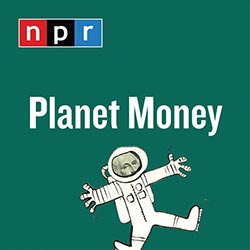 Planet Money
Planet Money
Born out of the financial crisis in 2008, National Public Radio’s podcast about the economics of everything covers food in unexpected ways. From the cost of popcorn in a baseball stadium to the concept of “free” food, Planet Money is full of insights about the role economics plays in how we eat.
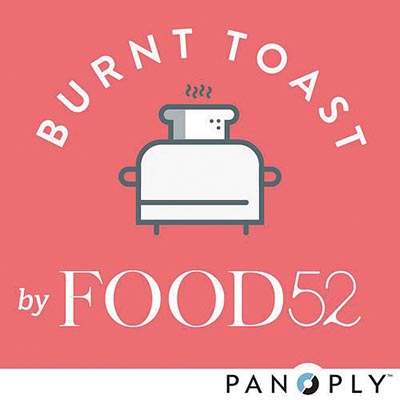 Food52’s Burnt Toast
Food52’s Burnt Toast
Since 2009, Food52 founders Amanda Hesser and Merrill Stubbs have curated this community-based trove of kitchen goods and recipes. Their podcast, “Food52’s Burnt Toast,” will elucidate just how your toast burns — and why. Such a simple food, with a complicated twist.
 Article
Article
We found another ingredient map in the article “Deconstructing the Environmental Footprint of a Sandwich” in Anthropocene. You may never again order a meat sandwich. Check out the first issue of Food+City for our map of the ingredients for a sandwich made in Austin.
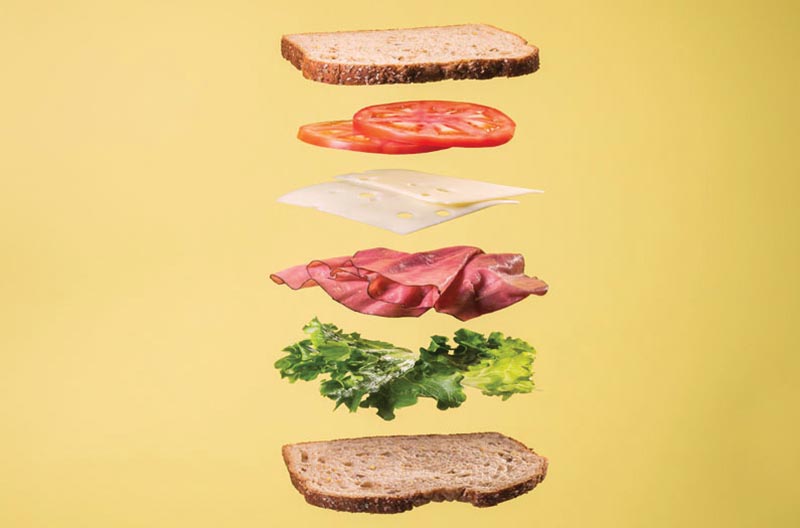
 Film/TV
Film/TV
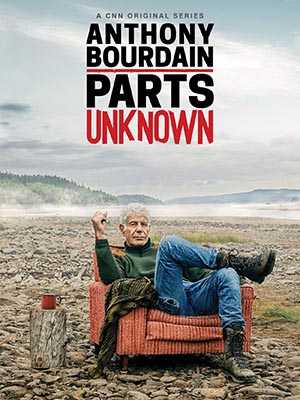 Anthony Bourdain’s Parts Unknown
Anthony Bourdain’s Parts Unknown
The passing of food legend Anthony Bourdain is a good reason to review (or re-view) his award-winning Parts Unknown. It’s worth reconsidering every episode in appreciation of his close-up view of food and the people around the world who make it.
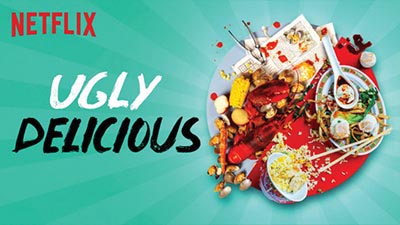 Ugly Delicious
Ugly Delicious
As our screens flood with documentaries that shame and disgust us, we are ready to see a new take on the food world. David Chang does this with his series about ordinary food made by ordinary people. The series also has helpings of Chang’s personal story about his beginnings as a chef and his conflicted relationship with Korean cuisine.
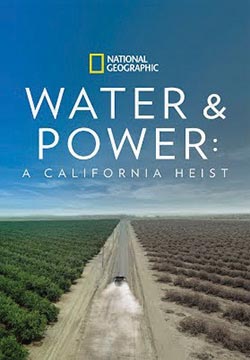 Water and Power: A California Heist
Water and Power: A California Heist
Food production relies on water. With fires raging in California during the summer of 2018, water resources for firefighters were even more scarce. Long the focus of battles between environmental conservation activists and economic development advocates, water resources are hotly contested. If you want some historical context for this topic, check out the PBS “Cadillac Desert” series, especially “Mulholland’s Dreams.”
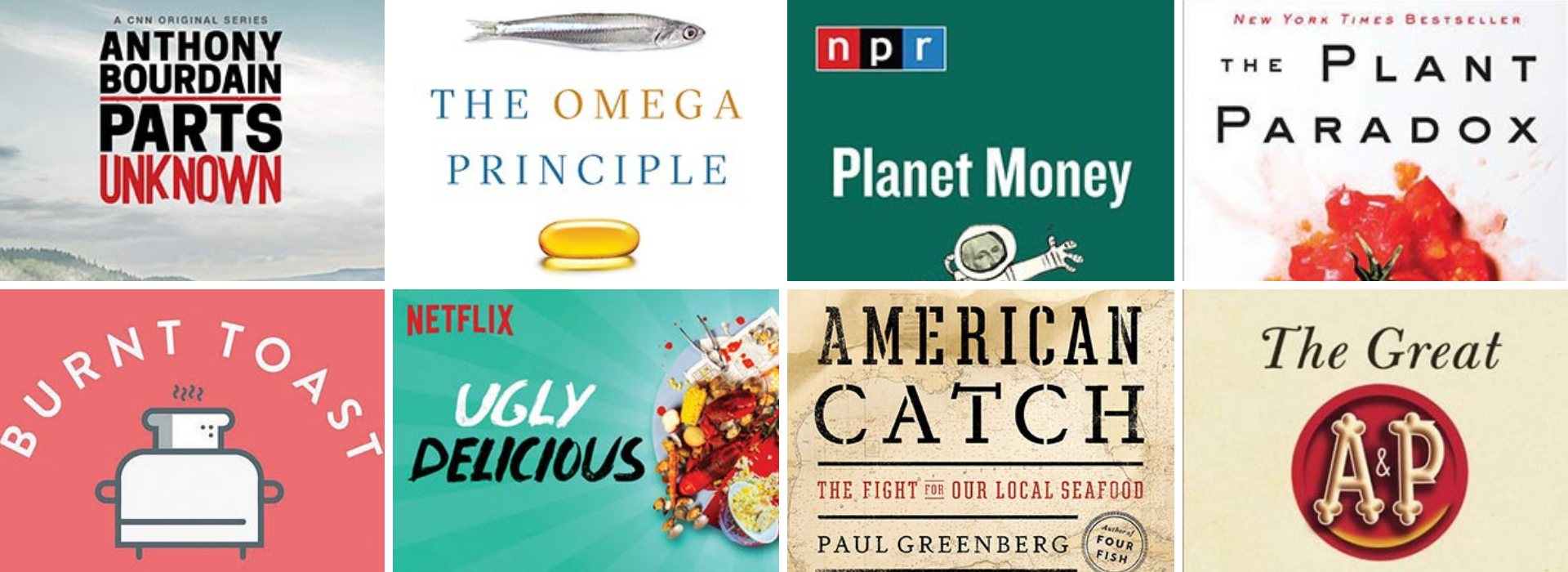
Author